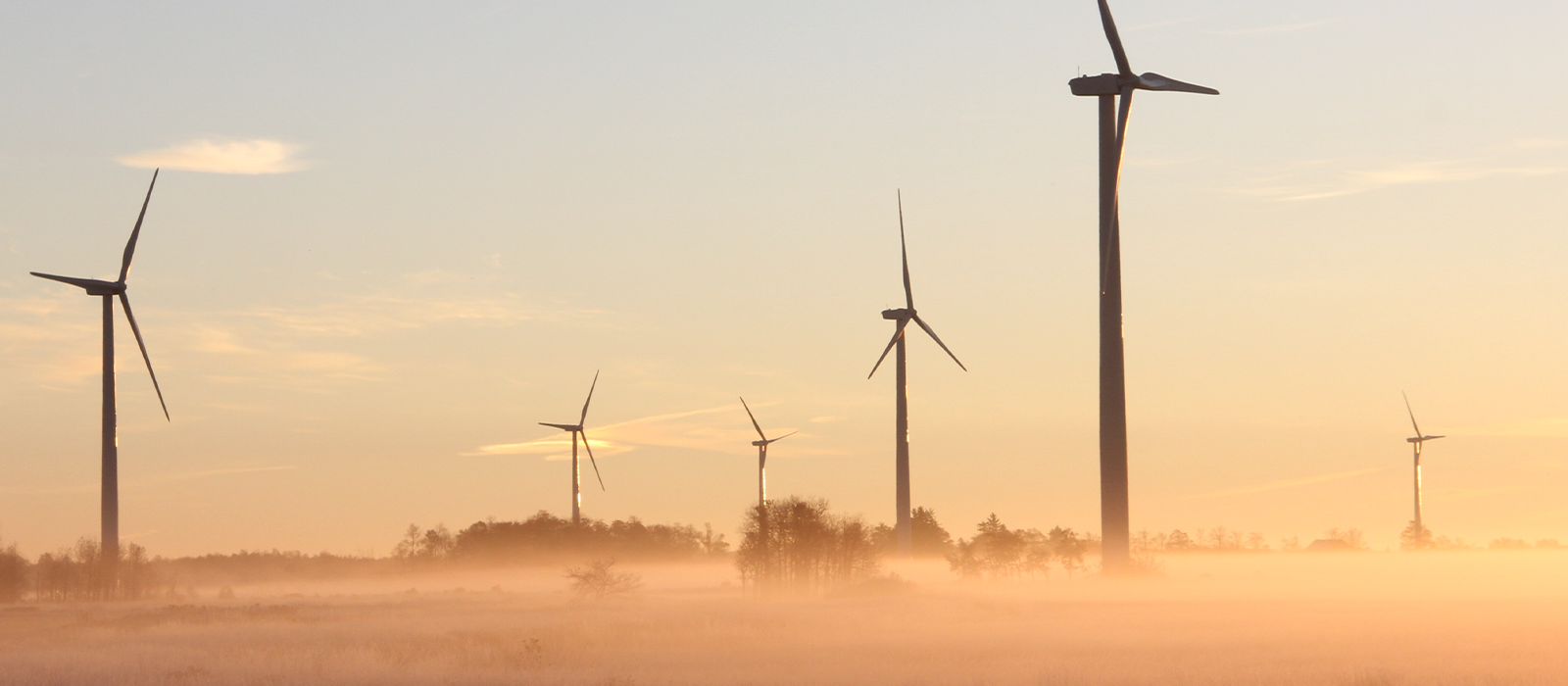Impact
Sustainable energy is about more than wind turbines, solar panels, pipelines and carbon pricing. Energy underpins all our major systems of social provisioning (how we move people and freight, build our cities, operate the agri-food system and so much more). It impacts health, employment, welfare and equity. It engages with multiple areas of public policy including transport, housing, public health, urban affairs, Indigenous issues, industrial policy, agriculture and food, national security and trade, regional economic development and taxation.
Our graduates are participants and leaders in organizations and processes that are working towards a net-zero-carbon future. They work as policy analysts for federal, provincial and municipal governments, serve in the government-relations offices within energy companies or work for consultancies or NGOs seeking ways to make energy systems more efficient and sustainable. Our alumni form a strong professional network across the country, providing ongoing learning opportunities and career advantages.
Jesse Good
Current Career: Analyst, Library of Parliament
Degree: MA-SE graduate 2012
Career/Program Highlights: Listen to MA-SE alumnus Jesse Good speak about the value of his experience at Carleton for his career working on Canadian energy and climate change policy.
The Program
The program is unique in North America for being interdisciplinary in content, delivery and student cohorts.
A suite of core courses provides a foundational understanding of the technical, political and economic dimensions of making energy more sustainable. They introduce policy students to key engineering principles that relate to the production, transmission and consumption of energy. You’ll be able to recognize the incentives and constraints posed by energy markets, and to anticipate the imperatives and processes that affect public policy and decision-making.
Courses provide fundamental tools for evaluating alternative policies and technologies — tools that you will then apply by working in teams with engineering students to assess or develop real-world energy projects. You will acquire the conceptual and practical skills needed by energy professionals who seek to expand the availability and use of renewable sources, or technologies to minimize the environmental impacts of non-renewable sources, or practices for smarter energy demand management.
Certain students chose to pursue research projects as part of their elective requirements. In doing so, they gain experience advancing our understanding of sustainable energy transitions like how to improve public engagement in renewable energy projects or exploring recent energy governance innovations in Canada’s North.
A co-op option is available to full-time students in both the MPP and MENG program. Students admitted to this option must satisfactorily complete at least two work terms to graduate with co-op designation on their transcripts and diplomas. Work terms are four months in duration and provide placement in government departments or other organizations. Students gain opportunities to take what they learn from their courses and build practical knowledge from the work place.
The Experience
Students enter the Master of Public Policy in Sustainable Energy and the Environment from across the globe and from a variety of educational backgrounds including the social sciences, humanities, natural sciences and engineering. The first two terms of full-time study focus on the interdisciplinary aspects of sustainable energy. The final terms allow students to specialize in particular aspects of sustainability — with the option of conducting independent research. Electives cover everything from environmental policy and climate change politics, to urban sustainability and natural resource management. A student-run peer-reviewed journal in sustainable energy policy, innovation, science and the environment (ISEMA) publishes the best student papers.
Faculty from the School of Public Policy and Administration, as well as the Department of Mechanical and Aerospace Engineering, join seasoned professionals to deliver the program. A speaker series, field trips and guest lecturers provide insights from practitioners who are active in advancing energy sustainability. Many students build direct career experience into the degree by completing one or two terms of paid co-op work with a federal, provincial or municipal government department, or in the private or nonprofit sectors.
Students completing the MPP in Sustainable Energy and the Environment:
- Understand the sustainability challenges that confront modern society
- Explore the economic, social and technical systems that support livelihoods, but are creating destructive environmental impacts (climate change, biodiversity loss, air and water pollution).
- Gain knowledge and skills to contribute to building more sustainable ways of living.
- Solidify their knowledge and understanding of public policy as a means to address these complex challenges
- Undertake problem-solving through interdisciplinary teams
Degree Structure
The program comprises seven single-semester required courses and three elective courses, (5.0 course credits) or a major research project or thesis option with a reduced number of elective courses. The program can be completed by spring of the second year of the master’s program, including two terms of full-time co-op work. For more info on course structure please visit the Sustainable Energy website.
Information on Admissions
Please see the Graduate Calendar for admission requirements.
For an estimate of tuition fees, please use the fee estimate calculator.

BACK TO TOP
